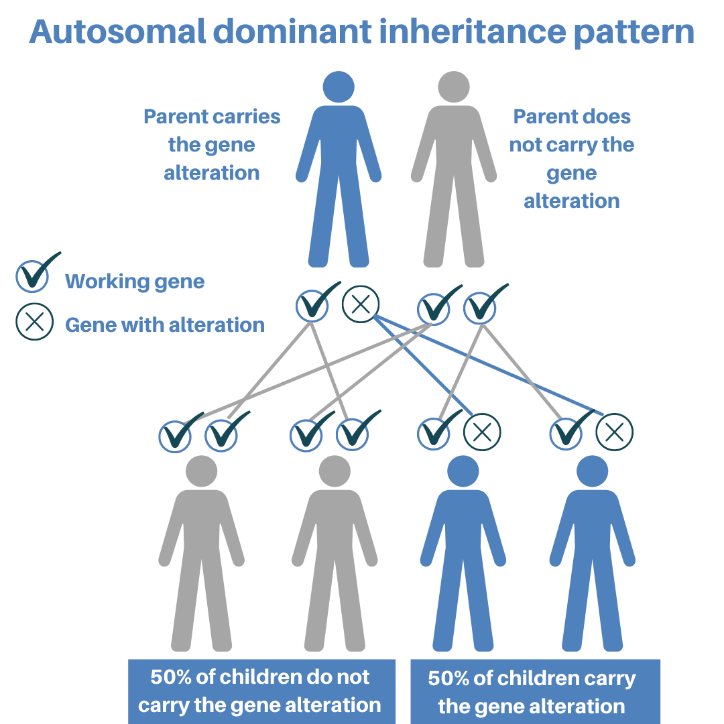How did I get Lynch syndrome?
To understand how Lynch syndrome happens, we need to understand DNA and genes. DNA is the code our bodies use to make genes. Genes are the instructions that tell our body how to grow and develop, and each gene has their own job to perform. Some of our genes determine what hair and eye colour we have, and some are responsible for protecting us against diseases like cancer.
Inherited conditions are due to a genetic change (also known as a variant or genetic alteration) in a particular gene, which can be passed on in a family. A genetic change may alter the level of protection a family has against certain diseases such as cancer.
Lynch syndrome is usually caused by a change in the mismatch repair genes. Mismatch repair genes protect us against cancer by repairing DNA mistakes that can occur when our cells are made. The Lynch syndrome genes are like police officers in our body, checking that cells know when to stop dividing and do not turn into cancer cells, and by doing so they protect us against cancer. If these genes aren’t working properly, this might result in fewer police officers protecting us against cancer.
When we are conceived, we inherit two copies of every gene, one copy from our mother and one copy from our father. If one of our parents has Lynch syndrome, at the point of conception, they have a 50% chance of passing on their altered copy and 50% chance of passing on their unaltered copy. If a person inherits the altered copy, they will have Lynch syndrome. This is also known as an autosomal dominant inheritance pattern. This also means a person with Lynch syndrome has a 50% chance of passing on their altered gene each time they have a child.
Mismatch repair genes are inherited from your parents. If you inherit an altered copy of the gene which causes Lynch syndrome, you have Lynch syndrome. Luckily, the copy from the other parent may work just fine. However, there is a chance that one day your working mismatch repair gene will make a mistake in one of the organs affected by Lynch syndrome. When both of your mismatch repair genes are no longer working, you have less protection against cancer, and so cancer will be more likely to occur.
In 99% of cases, you would have inherited Lynch syndrome from one of your parents. In this case, it is possible that your siblings will have it too. If you do not have Lynch syndrome, you cannot pass it on to your children because you cannot pass on something that you don’t have.
It is possible to have Lynch syndrome without inheriting it from your parents, but this is extremely rare. In this case, the genetic alteration happens by nature after conception, and you are the only one that has it. This is called a ‘de novo’ genetic alteration. This would be the first time that Lynch syndrome is found in the family. For this reason, your siblings and parents are unlikely to have Lynch syndrome, but your children will have a 50% chance of inheriting the alteration.


